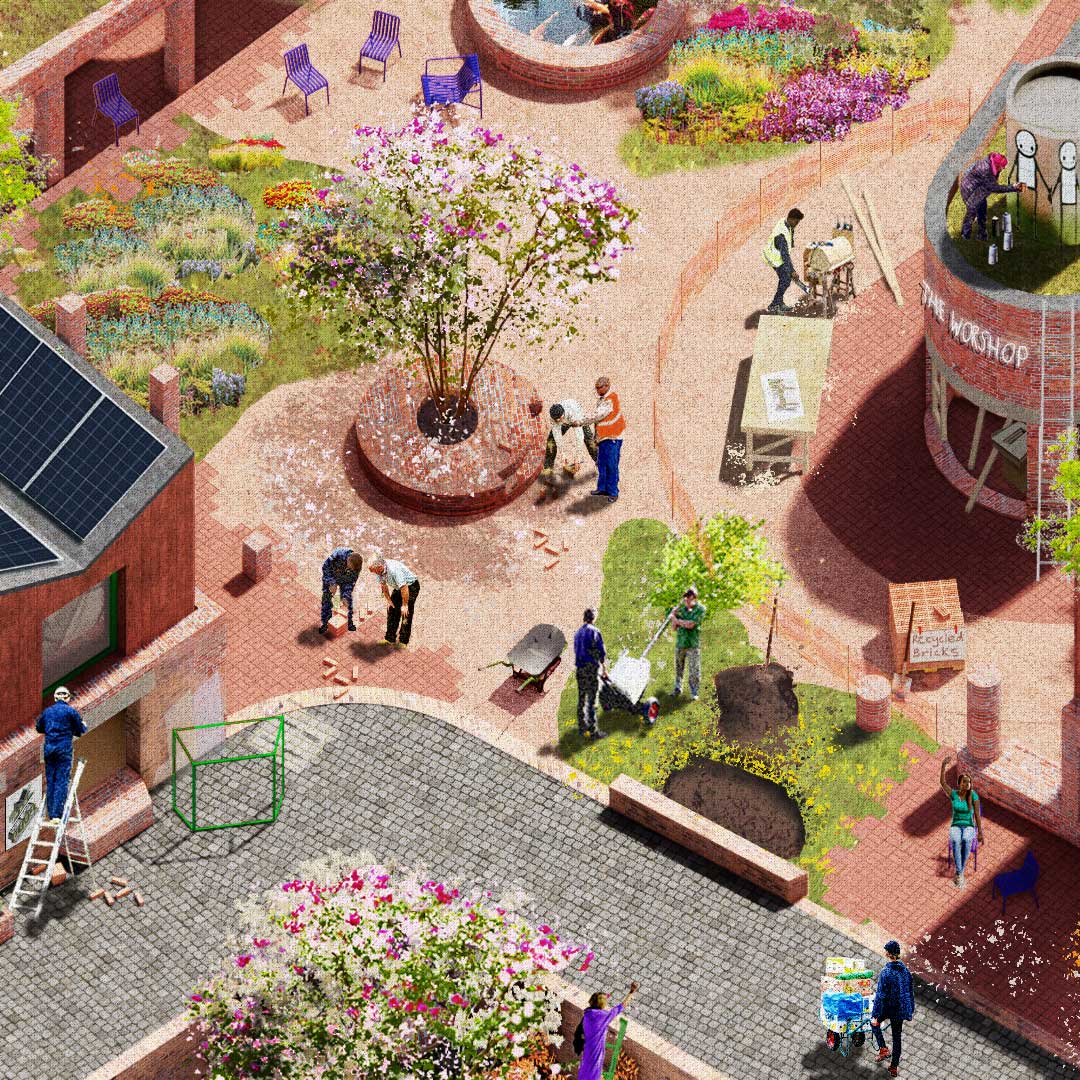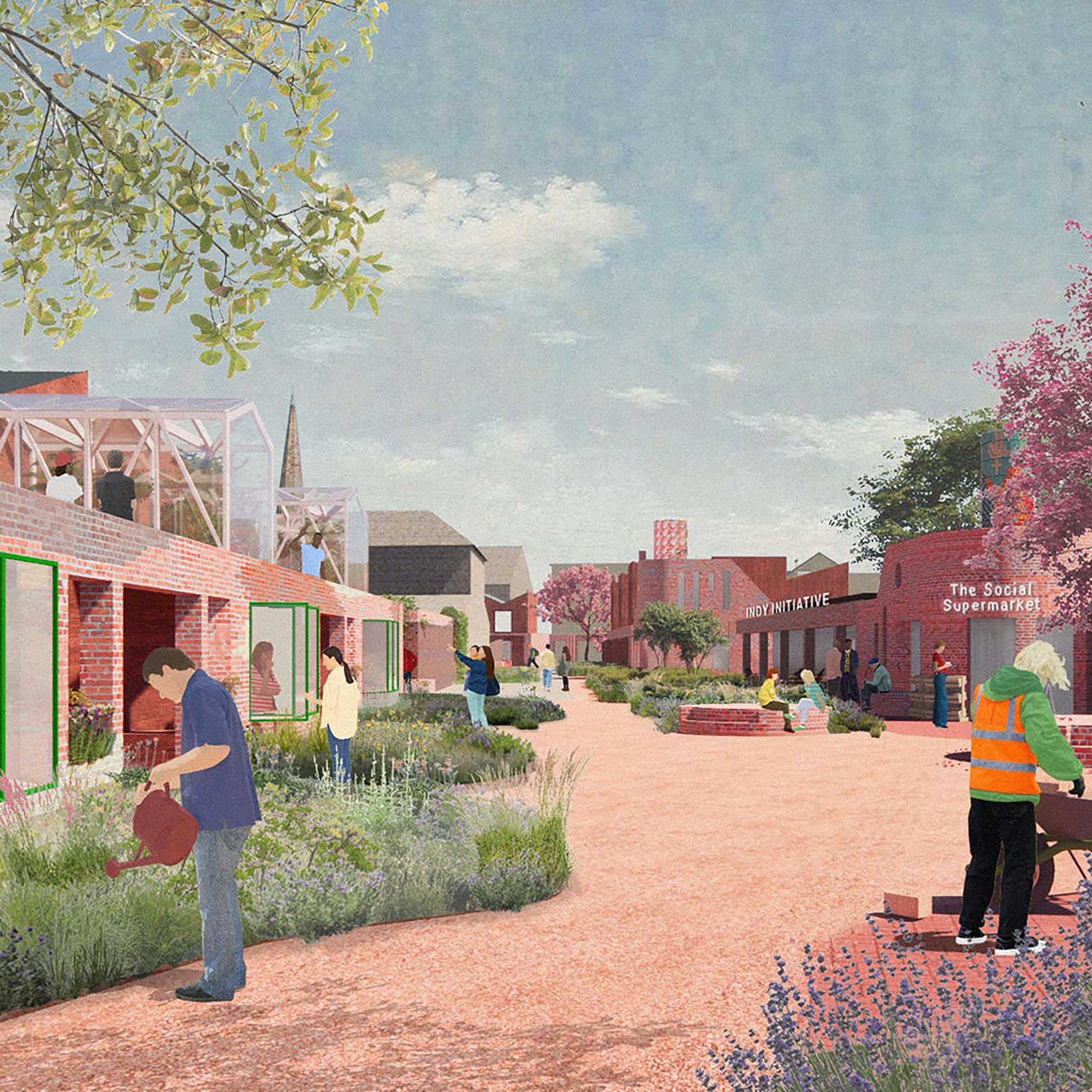
2023 Davidson Prize: Helping Hands
A collaboration with Studio MUTT, The Independence Initiative, Hugh Baird College, Amber Akaunu, Peter ‘The Poet’ O’Neil and Islington Hostel Outreach.
The Davidson Prize
The 2023 Davidson Prize theme was ‘Somewhere to Call Home’, and called for proposals which responded to the growing problem of homelessness.
The Brief
“Somewhere to call home is a fundamental human need.
An obvious solution to homelessness is more homes. But until those homes are built, more and more people are in urgent need of a place of shelter.
In the UK and Eire in 2022, increasing numbers of people are homeless or perilously close to it. In England in 2022, Shelter reported an 11% increase between January and March, with 74,230 people becoming homeless or being at imminent risk – including 25,610 families with children.
Since the abolition of workhouses in Britain in 1948 and Ireland in 1925, interim solutions for homelessness have varied widely from large-scale dormitories accommodating 1,000 people or more to bed and breakfast accommodation or expensive short-term rentals from buy-to-let landlords. Today, while some schemes such as Holmes Road by Peter Barber Architects for the London Borough of Camden provide a place of dignified refuge for people with extra care needs, elsewhere hostel provision can be less than hospitable.
Other contemporary ‘solutions’ may uproot people from existing networks of support including school, family and community. On top of this, homelessness accommodation often comes with stigma attached, and may fail to provide safety or privacy while being isolated from opportunities for work, meaningful occupation or social engagement.
As discussed by philosophers over the centuries, dwelling is fundamental to human existence – and few interim solutions meet the essence of ‘home’ encapsulated by American poet Robert Frost in the line ‘Something you somehow haven’t to deserve’.
How can people struggling with housing security ever feel truly at home?
The 2023 Davidson Prize asks you to imagine for a moment an amnesty on land ownership and a ban on empty buildings. Choose a brownfield or greenfield site or an unused building in any location in the UK or Eire and design a home community where people who have experienced the trauma of homelessness and housing insecurity are given time to settle, recover and find their bearings.”
You can read more about The Davidson Prose and the 2023 competition brief at The Davidson Prize website.
Our Response
Helping Hands
The National Audit Office suggests that a third of those leaving care experience homelessness within two years, and that a quarter of homeless people previously lived in care. Recent studies also found that 41% of care leavers were not in education, employment or training, compared to 15% of all 19 year olds. Our proposal seeks to connect these issues and facilitate an infrastructure to help care leavers transition to independent living and meaningful employment.
The site for our project is taken from the leftover spaces of a typical urban block, adjacent to Hugh Baird College in Liverpool, within which a number of expert organisations already offer support to homeless and vulnerable people. We propose opening and connecting ‘the backs’ of these organisations and reorienting them within a nurturing communal landscape, co-created by residents, neighbours and collaborating organisations.
Shared accommodation for care leavers occupies the corner while, arranged within the backlands, individual homes provide for greater degrees of independence. The repeated garden wall is a reassuring and recognisable presence with which the project creates spaces of varied character and incorporating small-scale social and civic spaces.
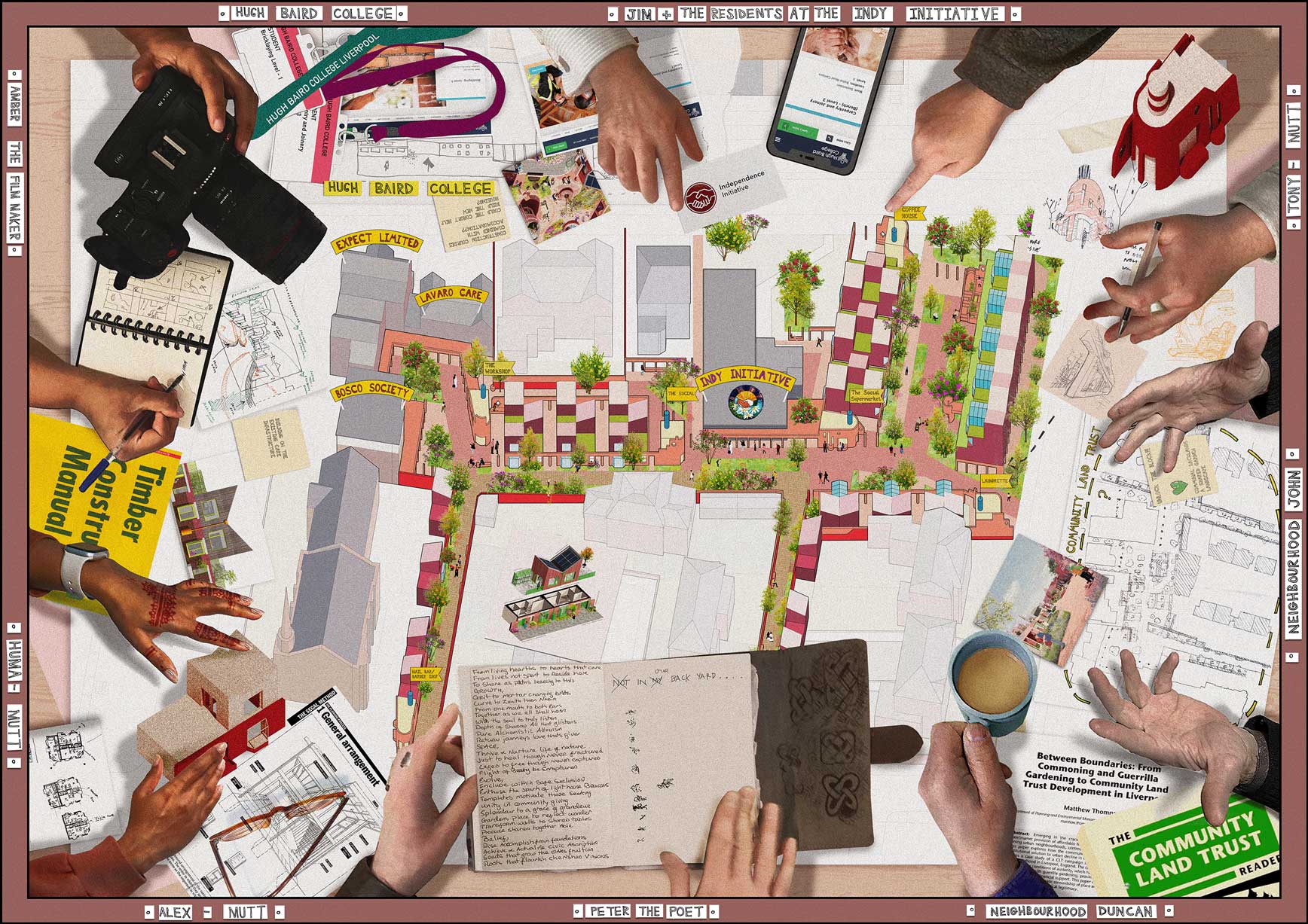
Helping Hands began with a focus on care-leavers, and an idea about providing transitional support, and routes into education and training, within a nurturing backland community developed from the unused spaces of a single urban block in Bootle, Liverpool.
In collaboration with The Independence Initiative, an organisation already present within the block, the continuation of the project builds directly upon the expertise and considerable experience of a highly effective organisation, and the latent potential for expanding the critical support and accommodation already offered – beyond the bounds of the current site and, incrementally, into the further reaches of the block.
Our project takes The Indy’s established stages of care, along with existing services and facilities like the community pantry and employability and training programs, and proposes that through the implementation of a phased expansion, this impact could reach a greater number of people, providing more stability and more routes to independence.
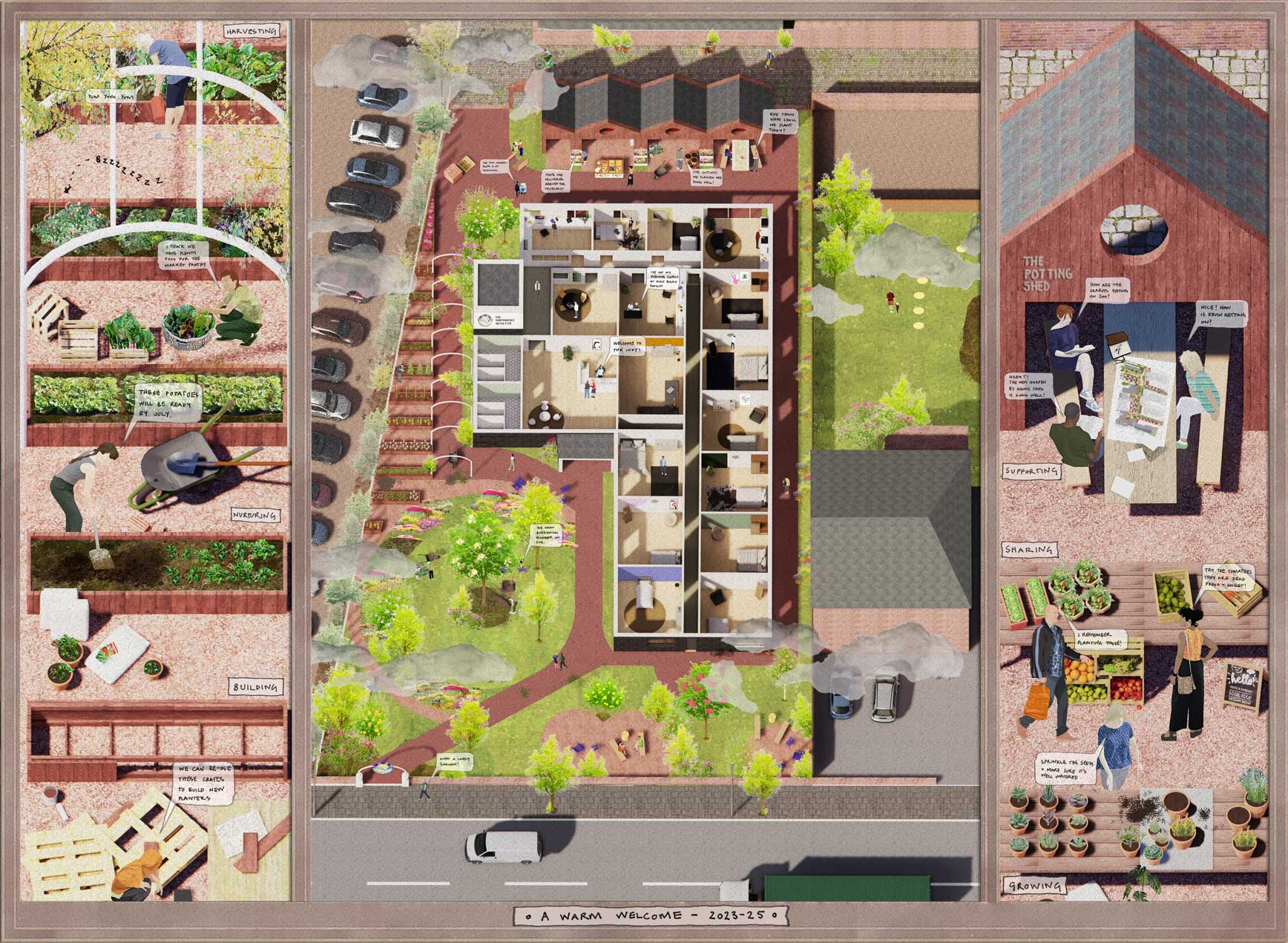
Warm Welcome
After an initial ‘Crisis Over’ phase of assessment and crisis prevention, clients at The Indy, who might typically have arrived upon release from prison or from a substance dependence unit, enter the ‘Warm Welcome’ stage, where the needs related to stability are identified and assistance given with connections to wider social support systems. Unsuitable living arrangements are often identified as a key threat to stability and the most vulnerable individuals may be offered accommodation on-site in one of The Indy’s ten transitional supported living units.
Our proposal relocates some of the communal facilities and support services to new structures within The Indy’s existing site, allowing for the expansion of the on-site living accommodation, and re-plans the garden to provide on-site growing of produce for the expanded pantry.
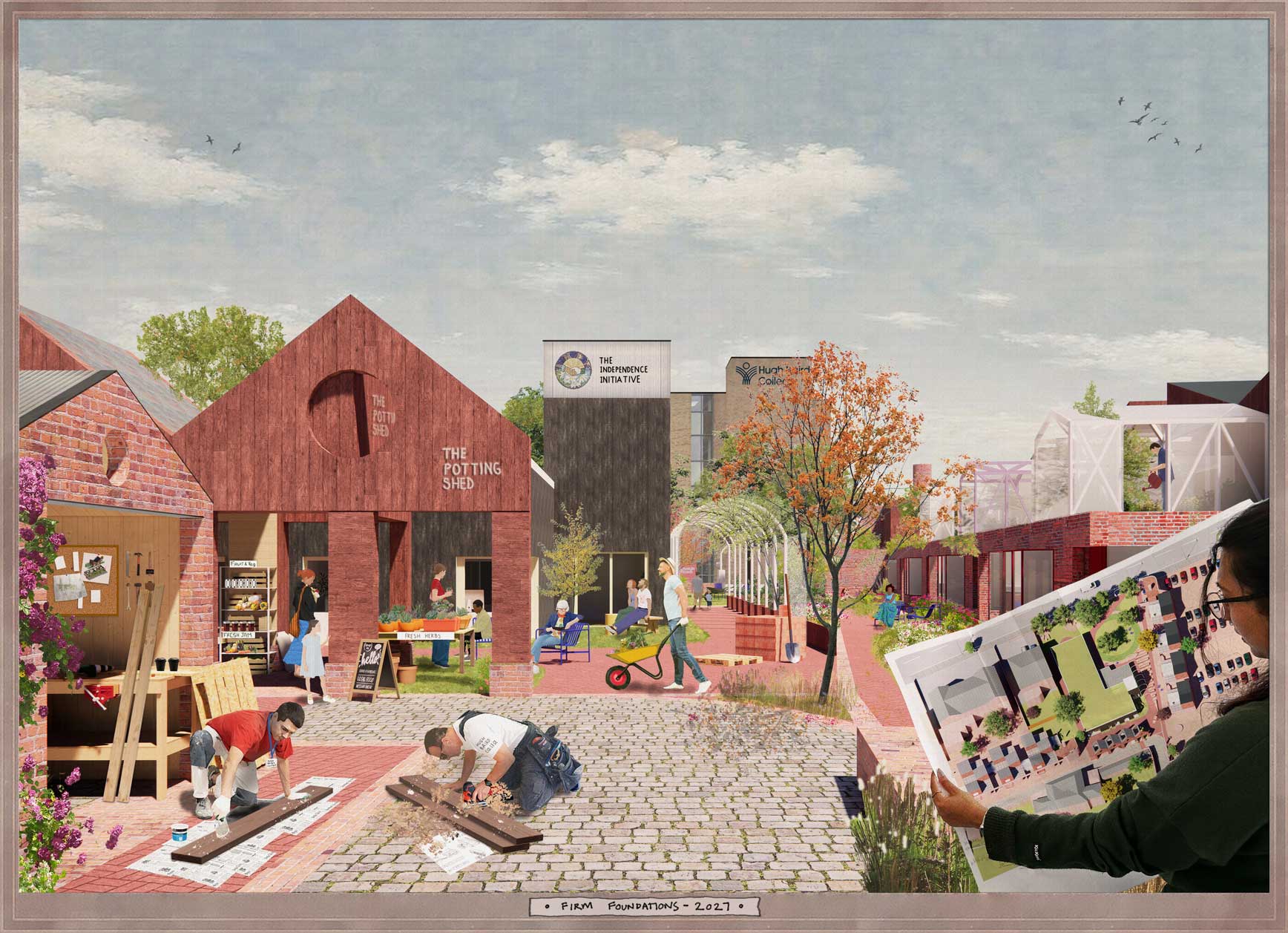
Firm Foundations
Once an individual is committed to stabilising recovery, tailored support is provided as they move into education, training, employment or other personal development activities.
With the collaboration of Hugh Baird College, this may also include construction skills training and participation in creating the next phase in the physical development of the project, extending beyond the boundaries of The Indy to establish additional semi-independent housing on available land adjacent to the site. Residents here gain greater independence whilst still held within the embrace of the block and with continued access to the facilities and support offered by The Indy.
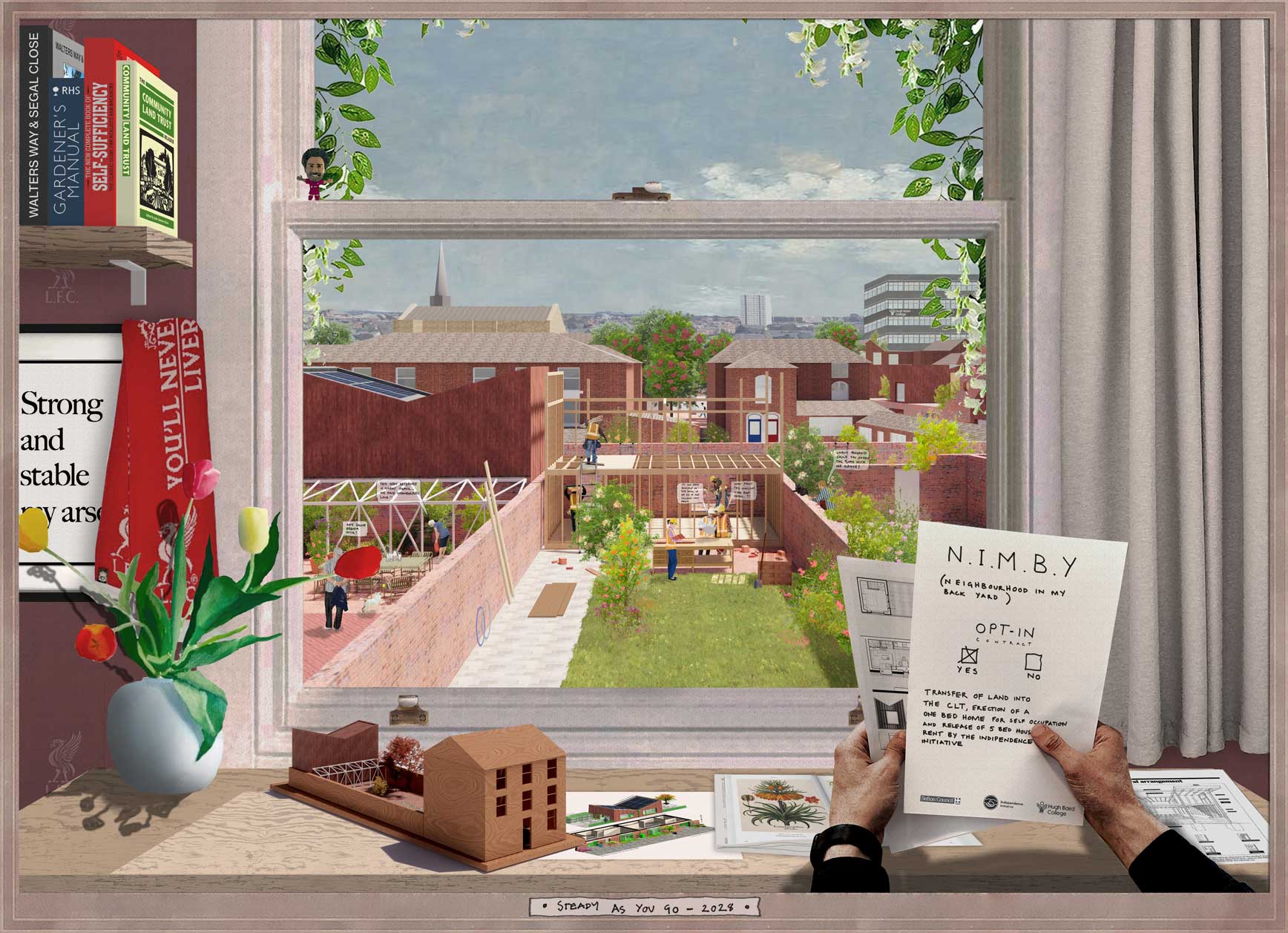
Steady As You Go
As independence grows and capacity increases, we envisage additional land being made available within the block. The remainder of the adjacent publicly owned car park is given over to a new building, providing transitional housing for care-leavers and construction training spaces for the college. Homeowners with large gardens ‘opt in’, providing build plots which address the increasingly active lane.
Some new homes are lived in by clients of The Indy. Others provide ‘right-sized’ accommodation for existing residents, who rent their under-occupied family homes to The Indy. Gradually, the project extends along the lane, connecting other existing supportive residential institutions to the expanded facilities and nurturing shared spaces clustered around The Indy at the heart of the block.
Awarded the 2023 Davidson Prize
Image Credits: Studio MUTT
Team: Neighbourhood, Studio MUTT, The Independent Initiative, Hugh Baird College, Amber Akaunu, Peter ‘The Poet’ O’Neil, Islington Hostel Outreach
